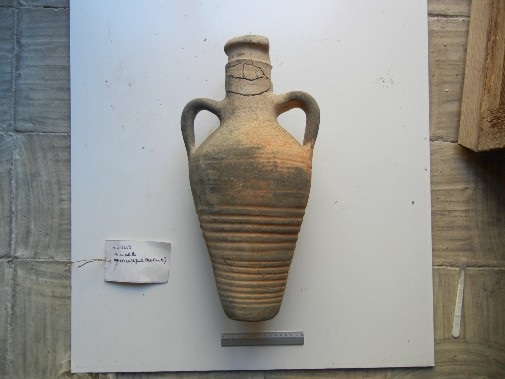This website uses cookies so that we can provide you with the best user experience possible. Cookie information is stored in your browser and performs functions such as recognising you when you return to our website and helping our team to understand which sections of the website you find most interesting and useful.
Study finds evidence of ‘prosperous’ wine trade in Islamic Sicily
A study conducted by the universities of York and Rome Tor Vergata has found evidence of a prosperous wine trade in Sicily during the Islamic occupation.

Researchers studied chemical residues found on medieval amphorae dating from the 9th to 11th century. The team found evidence that the vessels had held wine, with traces of grapes found as far away as Sardinia and Pisa.
This, they concluded, meant that not only was wine production flourishing in the region, but that it was also being exported across the Mediterranean.
Comparing chemical traces found inside the vessels to wine-soaked sherds (broken pieces of ceramic material), they concluded the residue was from grapes implying wine production.
While there is no evidence to suggest that members of the Islamic community actually drank the wine, they do appear to have taken an interest in its production and sale.
The team found evidence that Sicilian wine was given distinctive ‘branding’ through the use of a special type of amphora. Researchers can trace this vessel around the Mediterranean to determine the trade routes used.
Professor Martin Carver from the University of York’s Department of Archaeology said: “Alcohol did not – and still does not – play a major role in the cultural life of Islamic society, so we were very interested in the question of how this medieval community had thrived in a wine-dominated region.
“Not only did they thrive, but built a solid economic foundation that gave them a very promising future, with the wine industry one of the core elements of their success.”
Before Sicily’s Islamic occupation there was evidence of wine trading, however researchers believe this was mostly imported wine rather than that produced from grapes grown on the island. They believe the Islamic community shifted the focus from wine consumption to production and export.
Professor Oliver Craig, who directs the University of York’s BioArCh centre where the research was carried out, added: “Now that we have a quick and reliable test for grape products in ceramic containers, it will be interesting to investigate the deeper history, and even prehistory, of wine production and trade in the Mediterranean.
The study, entitled ‘Chemical evidence for the persistence of wine production and trade in Early Medieval Islamic Sicily’, has been published in the Proceedings of the National Academy of Sciences (PNAS) journal.
Read more:
EARLY SCOTTISH SETTLERS DRANK MEDITERRANEAN WINE, ARCHAEOLOGISTS FIND

